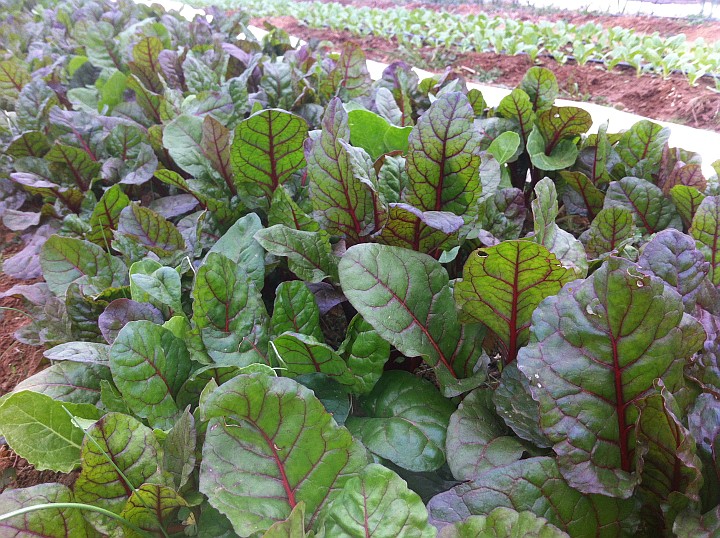Last week you may have noticed that someone else was nibbling around the edges of your bok choy leaves. While we would love it if every leaf we harvested was 100% perfect, we accept a certain amount of cosmetic pest damage as normal. Just because we have a pest doesn’t mean we have a pest problem. Low numbers of insect pests are actually good for the garden because we need to keep our toads, ladybugs and other pest eaters happy. No pests means no food for our beneficial insects and animals.
That doesn’t mean we get to sit back and relax when it comes to insect pests. Our first and best line of defense against insect pests is prevention. This is where we natural farmers have the biggest and best tool kit. Once a pest digs in and becomes a real problem our toolkit is small, expensive, time consuming and comparatively ineffective. Often it is best to get out the tractor, plow a crop under and say “better luck next time” rather than spending time, money and energy and still losing to the bugs! As the saying goes, an ounce of prevention is worth a pound of cure.
What does prevention look like? A diverse plant and animal community promotes balance in insect populations. If the timing works out we usually let mustard, arugula, and other greens go to seed after we are done harvesting them so that nectar and pollen are available at all times. We avoid the use of broad spectrum insecticides as much as possible. While they may offer a quick fix for certain pests, these insecticides, while organic, will also kill beneficial insects. A sterile, insect-free field is an invitation for future infestation because natural checks and balances are absent. Pest that have been introduced from other parts of the world and pests that do not have a lot of natural predators can be difficult to control. Our favorite strategy in these situations is to cover the crops with a fabric pest barrier that allows water and sunlight to penetrate but keeps insects out. We also try to plant varieties that have natural resistance to certain pests that we know are a problem for us. We are by no means experts. I am sure this year will bring plenty of new learning opportunities for us about pest control, which means you can expect to see more nibbles on your produce throughout the season.
Before we bought this farm it was conventionally cropped in soybeans for years and years and years. It is going to take some time to cultivate the diverse and balanced ecosystem both above and below the soil. Each year we are seeing more earthworms and we take that as a sign that we are moving in the right direction.



